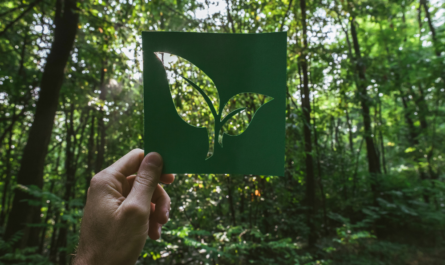Last week, a group of U.S. bedding manufacturers, foam suppliers and two unions partnered to file antidumping and countervailing duty petitions with the Department of Commerce and the U.S. International Trade Commission against mattresses imported from 13 countries.
As the third case filed about antidumping by American manufacturers in the past five years, petitions were filed by Yohai Baisburd, a partner with Cassidy, Levy, Kent, on behalf of Brooklyn Bedding, Carpenter Co., Corsicana Mattress Co., Future Foam, FXI, Kolcraft Enterprises, Leggett & Platt, Serta Simmons Bedding, Southerland and Tempur Sealy International.
So what does this mean for the industry?
If the petition goes through, it could level the playing field for domestic manufacturers. While many of the companies involved in filing the petition are not yet able to speak on the matter, Bedding News Now spoke with several people around Las Vegas Market to find out how this could affect sourcing and production going forward.
“Manufacturers of low-end mattresses are fungible, ” says Frank Hood, president and CEO of Kingsdown. “It’s not scalable to have an external entity that creates an unfair advantage. When low-priced products come in, it takes away from the quality product U.S. manufacturers make.”
Nick Bates, president of Spring Air, said if this petition is enforced, it would affect both retailers and manufacturers positively, with boxed-bed companies affected the most.
However, there are two other key questions here.
First, will U.S. producers be able to fill the void that the 13 companies in the filing will likely leave?
Most people, including Hood and Bates, said U.S producers will be more than able to fill it.
“I think James McIngvale said it best after Lane’s demise: ‘Thanks, offshoring, for ruining this country,'” says Chris Taheny, DreamFit vice president of sales. “The offshoring of manufacturing from America to the rest of the world is tantamount to someone stealing your car, abusing it for a year, and then selling it back to you. America has enough capacity to make more than enough mattress products to satisfy needs relative to the budget that it doesn’t need a constant bombardment of products made with potentially exploited labor.”
Others are also confident that there are enough quality manufacturers to provide for the excess. Steve Sciortino, CFO of Bedding Industries of America, said he’s already heard about companies who import a lot of product starting to look at domestic alternatives.
But the second question is, how long?
How long will it take to enforce the petition and how long will it take for domestic manufacturers to pick up the slack?
That’s a question that no one seems to have an immediate answer to, but it is one that U.S. producers will be thinking about while this filing passes through the DOC.
Tom Russell, editor-in-chief of our sister publication Home News Now, dug into the petition in great detail and found there are some other relevant points that should be noted, particularly for those looking to better understand the issue.
Here are several takeaways he gathered on what the investigation includes and doesn’t include:
+ The scope of this preliminary investigation is fairly broad and covers a wide mix of bedding products. These include innerspring and non-innerspring mattresses and hybrid mattresses that consist of a core, an upholstered cover and ticking. The core as defined by the petition consists of innersprings, or non-innersprings such as foam. The ticking is the outermost layer of fabric that encloses the core and any upholstered material, and the upholstered cover refers to the material between the core and the ticking.
+ The scope also includes adult, youth and infant mattresses regardless of size. These can include daybed mattresses, sofa bed mattresses, roll-away bed mattresses, high risers and trundle mattresses. It also covers foam mattresses imported without ticking, including bed-in-a-box mattresses and mattress-in-a-box units and/or compressed mattresses. “Only the mattress is covered by the scope if imported as part of furniture, with furniture mechanisms or as part of a set in combination with a mattress foundation,” the petition states.
+ Falling outside the scope of the investigation are airbeds and waterbeds. Also outside the scope of the investigation are futon mattresses, which include both the bed and the seating surface for the futon. Other items excluded include multifunctional furniture that is convertible from seating to sleeping regardless of filler material or components. This includes convertible sofas, sofa beds, chaise sleepers and ottoman sleepers.
+ Other exclusions from the scope include bassinet pads less than 39 inches long and less than 25 inches wide and less than 2 inches deep. Mattress toppers, which typically have a height of 4 inches or less, also are excluded as are any products covered by existing antidumping orders on uncovered innerspring units from China, South Africa and Vietnam.



